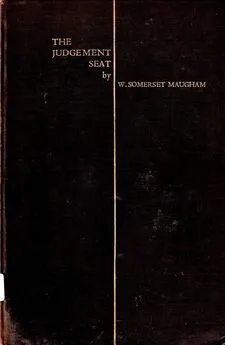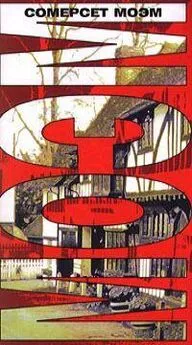Уильям Моэм - Английский язык с У. С. Моэмом. На окраине империи. Рассказы
- Название:Английский язык с У. С. Моэмом. На окраине империи. Рассказы
- Автор:
- Жанр:
- Издательство:неизвестно
- Год:неизвестен
- ISBN:нет данных
- Рейтинг:
- Избранное:Добавить в избранное
-
Отзывы:
-
Ваша оценка:
Уильям Моэм - Английский язык с У. С. Моэмом. На окраине империи. Рассказы краткое содержание
Метод чтения Ильи Франка
Английский язык с У. С. Моэмом. На окраине империи. Рассказы - читать онлайн бесплатно полную версию (весь текст целиком)
Интервал:
Закладка:
schooner ['sku: nq], skipper ['skIpq], eventually [I'ventSu(q)lI], terrible ['terqbl]
Sixteen men had landed on the island, but when at last a schooner, driven from her course by stress of weather, put in for shelter, no more than five were left. When the storm abated the skipper took four of these on board and eventually landed them at Sydney. German Harry refused to go with them. He said that during those three years he had seen such terrible things that he had a horror of his fellow-men and wished never to live with them again.
He would say no more (больше он ничего не говорил). He was absolutely fixed in his determination to stay, entirely by himself (он был совершенно непоколебим в своем решении остаться в совершенном одиночестве; fixed— неподвижный, закрепленный; постоянный, неменяющийся;determination— решимость, решительность ), in that lonely place (в том безлюдном месте; lonely— одинокий; глухой, заброшенный ). Though now and then opportunity had been given him to leave he had never taken it (и хотя время от времени ему предоставлялась возможность уехать, он так никогда ею и не воспользовался).
absolutely ["xbsq'lu: tlI], determination [dI" tWmI'neIS(q)n], entirely [In'taIqlI]
He would say no more. He was absolutely fixed in his determination to stay, entirely by himself, in that lonely place. Though now and then opportunity had been given him to leave he had never taken it.
A strange man and a strange story (странный человек и странная история; strange— незнакомый; странный, необычный, чудной ). I learned more about him as we sailed across the desolate sea (я узнал о нем больше, пока мы плыли по пустынному морю; to learn— изучать, учить; узнавать ). The Torres Straits are peppered with islands (Торресов пролив усыпан островками; pepper— перец;to pepper— перчить, посыпать перцем; осыпать, усеивать ) and at night we anchored on the lee of one or other of them (и ночью мы становились на якорь под ветром одного или другого из них = под прикрытием одного из этих островков; lee— защита, укрытие; подветренная сторона; on the lee — мор. под ветром ). Of late new pearling grounds have been discovered near Trebucket (недавно рядом с Требукетом были обнаружены новые участки для добычи жемчуга; ground— земля; участок земли; дно моря;to discover— открывать, делать открытие; обнаруживать, находить ) and in the autumn pearlers, visiting it now and then (и осенью ловцы жемчуга, посещая его /остров/ время от времени), have given German Harry various necessities (давали немцу Гарри различные предметы первой необходимости; necessity— необходимость, нужда; предмет первой необходимости ) so that he has been able to make himself sufficiently comfortable (чтобы он мог устроиться достаточно удобно).
desolate ['desqlqt, 'dezqlqt], various ['ve(q)rIqs], necessity [nI'sesItI]
A strange man and a strange story. I learned more about him as we sailed across the desolate sea. The Torres Straits are peppered with islands and at night we anchored on the lee of one or other of them. Of late new pearling grounds have been discovered near Trebucket and in the autumn pearlers, visiting it now and then, have given German Harry various necessities so that he has been able to make himself sufficiently comfortable.
They bring him papers (они привозят ему газеты; paper— бумага; газета, журнал ), bags of flour and rice (мешки с мукой и рисом), and canned meats (и мясные консервы; canned— консервированный;can— жестяная банка;meat— мясо ). He has a whale boat and used to go fishing in it (у него был вельбот, и он, бывало, отправлялся на нем ловить рыбу; whaleboat— китобойное судно;used to do smth. — иметь в прошлом обыкновение делать что-либо ), but now he is no longer strong enough to manage its unwieldy bulk (но теперь он уже не достаточно силен, чтобы справляться с его громоздкой массой; to wield— уметь обращаться ). There is abundant pearl shell on the reef that surrounds his island (огромное количество жемчужных раковин находится на рифе, что окружает его остров; abundant— обильный, изобильный ) and this he used to collect and sell to the pearlers for tobacco (и их он, бывало, собирал и продавал ловцам жемчуга за табак), and sometimes he found a good pearl for which he got a considerable sum (а иногда он находил хорошую = крупную жемчужину, за которую он получал значительную сумму /денег/; to get— доставать, добывать; зарабатывать, получать ).
enough [I'nAf], unwieldy [An'wi: ldI], abundant [q'bAndqnt], tobacco [tq'bxkqu]
They bring him papers, bags of flour and rice, and canned meats. He has a whale boat and used to go fishing in it, but now he is no longer strong enough to manage its unwieldy bulk. There is abundant pearl shell on the reef that surrounds his island and this he used to collect and sell to the pearlers for tobacco, and sometimes he found a good pearl for which he got a considerable sum.
It is believed that he has, hidden away somewhere, a collection of magnificent pearls (считается, что у него где-то запрятана коллекция великолепных жемчужин; to believe — верить; думать, полагать, считать; to hide ). During the war no pearlers came out (во время войны ловцы жемчуга не приплывали; to come out — появляться, являться, приходить ) and for years he never saw a living soul (и /долгие/ годы он не видел ни одной живой души). For all he knew, a terrible epidemic had killed off the entire human race (не исключено /думал он/, что ужасная эпидемия уничтожила всю человеческую расу; for all I know — насколько мне известно; не исключено; to kill /off/ —убивать, лишать жизни; ликвидировать, уничтожать ) and he was the only man alive (и что он был единственным живым человеком). He was asked later what he thought (позже его спросили, о чем он подумал).
"I thought something had happened (я думал, что что-то случилось)," he said.
magnificent [mxg'nIfIs(q)nt], epidemic ["epI'demIk], thought [TO: t]
It is believed that he has, hidden away somewhere, a collection of magnificent pearls. During the war no pearlers came out and for years he never saw a living soul. For all he knew, a terrible epidemic had killed off the entire human race and he was the only man alive. He was asked later what he thought.
"I thought something had happened," he said.
He ran out of matches and was afraid that his fire would go out (у него закончились спички, и он боялся, что /его/ огонь потухнет; to run out — кончаться, иссякать; остаться без чего-либо/когда иссякнет запас/; to go out — погаснуть ), so he only slept in snatches (поэтому спал он /только/ урывками; snatch — хватание, попытка схватить; момент, мгновение, короткий промежуток времени ), putting wood on his fire from time to time all day and all night (подкладывая дрова в огонь время от времени, весь день и всю ночь; wood — лес, роща; дрова, древесное топливо ). He came to the end of his provisions (съестные припасы у него закончились; to come to an end — прийти к концу, кончиться ) and lived on chickens (и он питался курятиной; to live /on/ —жить, существовать; питаться/чем-либо/; chicken — цыпленок; курятина, куриное мясо ), fish (рыбой) and coconuts (и кокосами). Sometimes he got a turtle (иногда он добывал черепаху).
match [mxtS], snatch [snxtS], turtle [tWtl]
He ran out of matches and was afraid that his fire would go out, so he only slept in snatches, putting wood on his fire from time to time all day and all night. He came to the end of his provisions and lived on chickens, fish and coconuts. Sometimes he got a turtle.
During the last four months of the year there may be two or three pearlers about (в последние четыре месяца года, где-то рядом с его островом, могут находиться двое или трое ловцов жемчуга; to be about — быть поблизости ) and not infrequently after the day’s work (и довольно часто, после рабочего дня; frequent — частый, infrequent — редкий ) they will row in and spend an evening with him (они приплывают /к нему на остров/, и проводят с ним вечер; to row — грести/на лодке/; to spend — тратить, растрачивать; проводить/время/ ). They try to make him drunk (они пытаются напоить его: «сделать его пьяным»; to drink — пить; выпивать, пьянствовать; drunk — пьяный ) and then they ask him what happened during those three years (и тогда они спрашивают его /о том/, что же произошло во время тех трех лет) after the two boat-loads came to the island (после того как две /груженые/ лодки приплыли на этот остров; boat — лодка, шлюпка; load — груз; нагрузка, загрузка; boatload — полная нагрузка лодки ). How was it that sixteen landed (как же случилось так, что сошло на берег шестнадцать /человек/) and at the end of that time only five were left (и к концу того времени = спустя три года , остались только пятеро)? He never says a word (он никогда ничего не говорит: «он не говорит ни слова»). Drunk or sober he is equally silent on that subject (пьяный или трезвый — он /всегда/ одинаково неразговорчив на эту тему; equally— поровну; в равной степени, одинаково;silent— молчаливый, безмолвный; немногословный, замкнутый ) and if they insist grows angry and leaves them (и если они настаивают, /то он/ сердится, и уходит от них; to grow— расти, вырастать; делаться, становиться;angry— сердитый, гневный ).
Читать дальшеИнтервал:
Закладка:

![Уильям Моэм - Сумка с книгами [Рассказы]](/books/1081361/uilyam-moem-sumka-s-knigami-rasskazy.webp)

